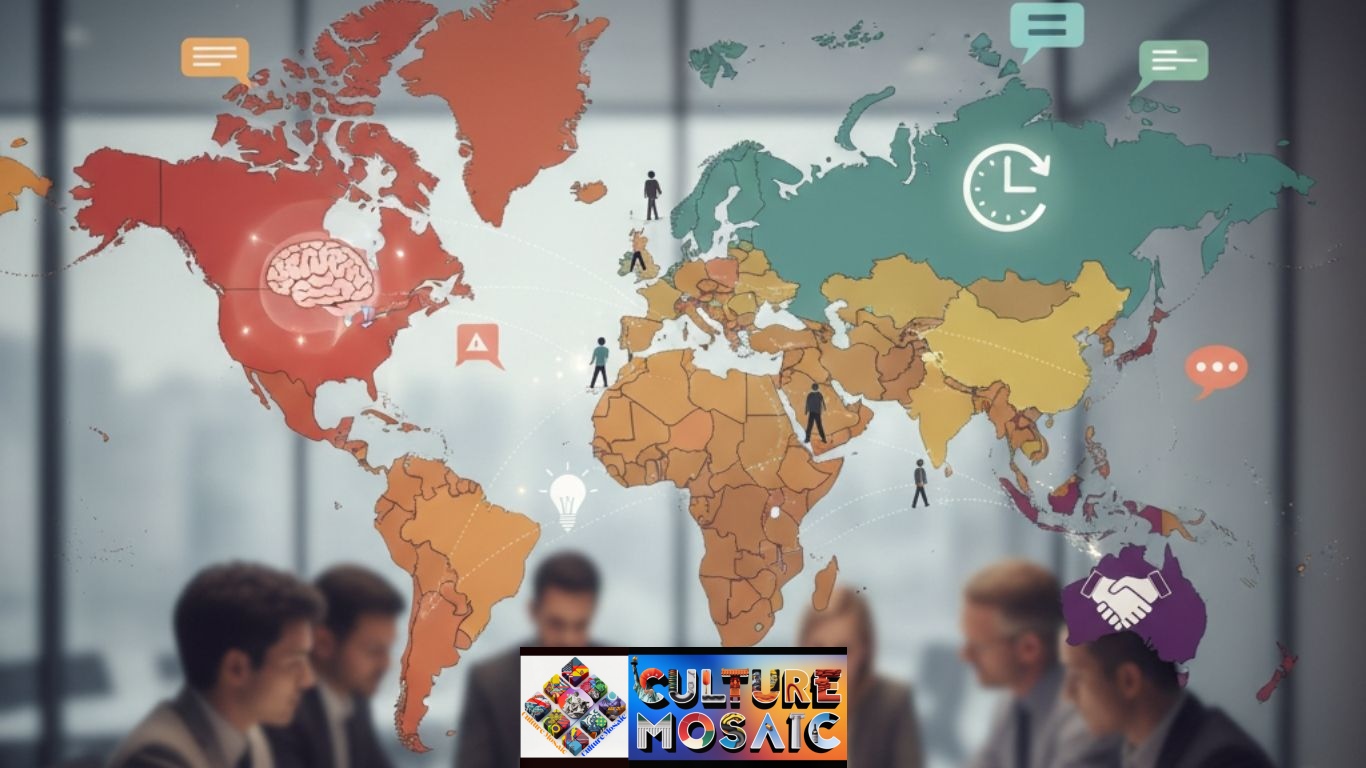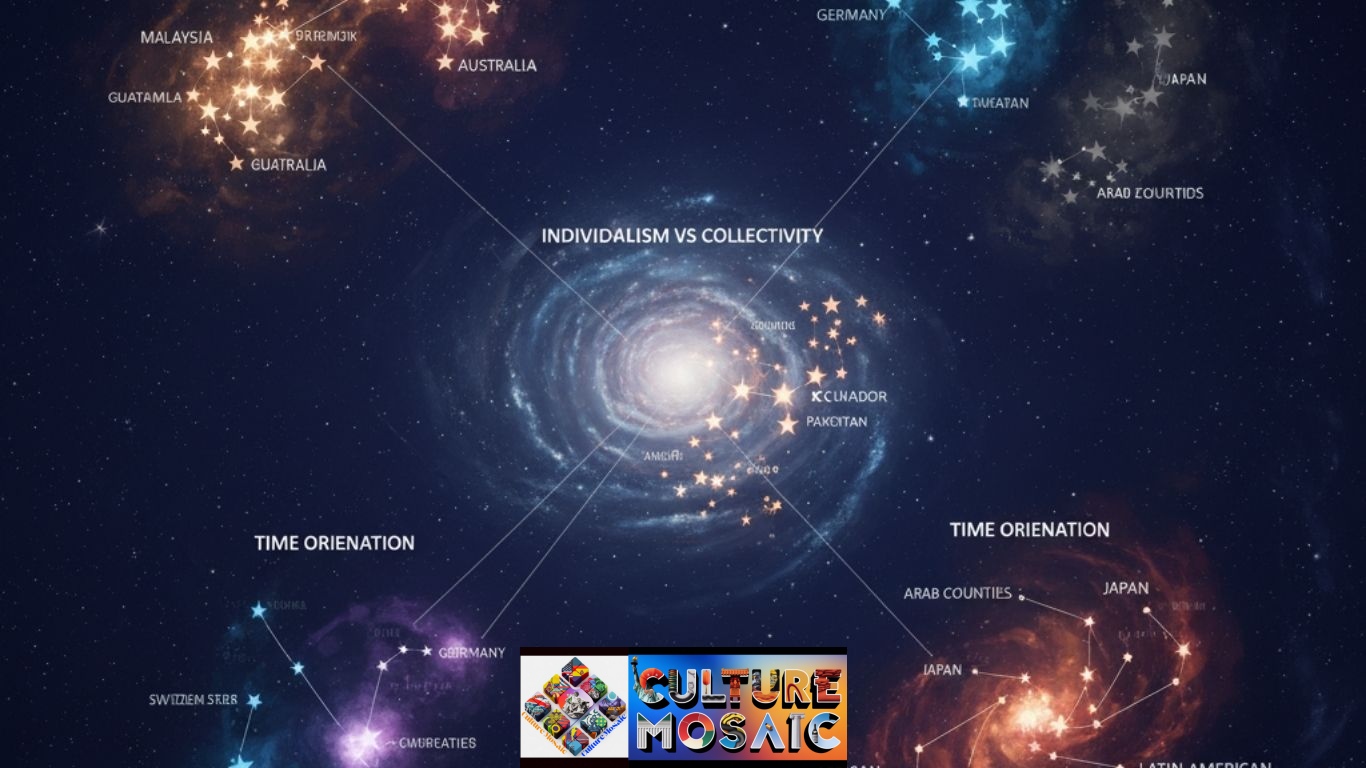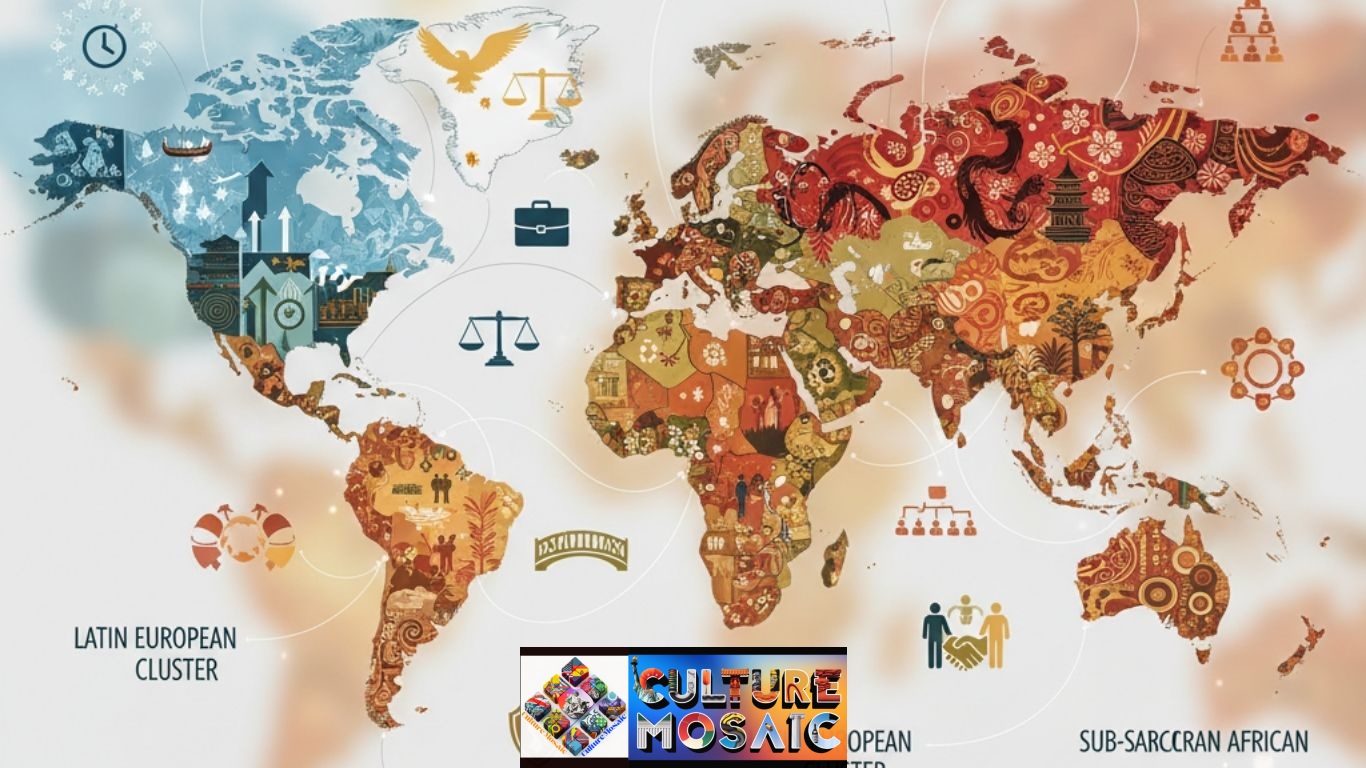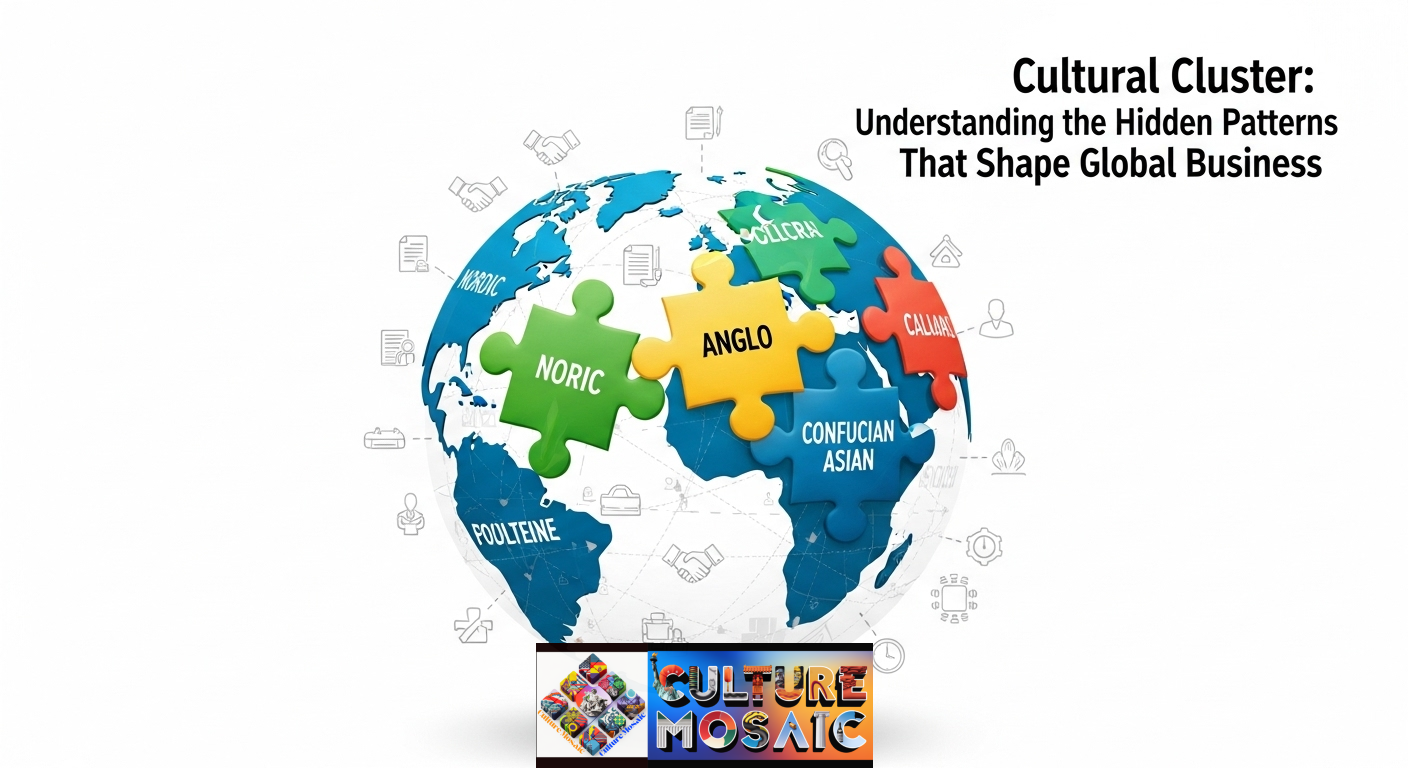Ever wondered why some international business meetings feel like smooth sailing while others feel like navigating a minefield? The answer is often contained in a cultural cluster – something called invisible patterns that occur in countries with similar workplace values, communication styles, and commercial outlooks as group countries.
Think of cultural groups as the DNA of international trade culture. For example, how some personality types naturally click, the countries within the same cultural cluster almost “get” the way each other do business.
What Exactly Is a Cultural Cluster?

A cultural cluster represents a group of countries that share the same values, notable when talking about workplace behavior, leadership expectations, and business communication. These are not random groups-they are based on decades of research on how various societies do everything from making decisions to dealing with conflict.
The most attractive part? Your personal working style probably aligns more closely with some cultural groups than others, wherever you are born. Maybe you are American but think like a Scandinavian when it comes to hierarchy, or perhaps you are Japanese but talk about time management like a Latin American person.
The Science Behind Cultural Clustering

Researchers such as Geert Hofstede and Erin Meyer have spent many years studying how cultures vary in important dimensions. When you compare countries on these dimensions, clear clusters emerge—much like the constellations in the night sky of global business culture.
Major Cultural Dimensions That Create Clusters
Power Distance: How comfortable are people with hierarchy and uneven power distribution? Countries such as Malaysia and Guatemala sit in groups of high-strength distance, while Denmark and New Zealand cluster simultaneously at the low end.
Individualism versus collectivity: Does culture prioritize personal achievement or group harmony? The United States and Australia form a highly individualist cluster, whereas countries such as Ecuador and Pakistan tend to emphasize collective values.
Communication style: Some cultural groups favor direct, clear communication (thinking of Germany and the Netherlands), while others rely more on reference and reading between the lines (Japan and many Arab countries).
Time orientation: Linear-time clusters (Switzerland, Germany) see the schedule as holy, while flexible-time clusters (many African and Latin American countries) see time as more liquid and relationship-dependent.
The Major Global Cultural Clusters

The Nordic Cluster
Countries such as Sweden, Norway, Denmark, and Finland share low power distance, high individualism, social responsibility, and direct communication styles. If you prefer flat organizational structures and value work-life balance, you can be Nordic-inspired.
The Anglo Cluster
This cluster, which includes the US, UK, Australia, and Canada, emphasizes personal achievement, a relatively low power distance, and leadership that is work-oriented. These cultures differentiate personal relationships from business decisions.
The Germanic Cluster
Germany, Austria, and Switzerland form a cluster characterized by low power distance, moderate individualism, and high direct communication. Accuracy, time management, and systematic approaches define this cluster.
The Latin European Cluster
Spain, France, Italy, and Portugal cluster together with a moderate power distance, balanced individualism, and more hierarchical structures compared to their northern neighbors. Relationships play an important role in business success.
The Confucian Asian Cluster
Based on Confucian values, countries such as China, Japan, South Korea, and Singapore typically exhibit high power distances, long-term orientation, and harmony-centered communication styles.
The Latin American Cluster
Most of South and Central America creates a cluster with high strength distance, strong family/group orientation, and a relationship-first business approach. Personal connections often matter more than contracts.
The Middle Eastern Cluster
Characterized by high strength distance, loyalty to strong groups, and reference-based communication. Trust and personal relationships form the foundation of professional behavior.
The Sub-Saharan African Cluster
Many African nations tend to exhibit high power distance, a strong sense of community, and flexible concepts of time. The philosophy of Ubuntu, which emphasizes interconnectedness, plays a significant role in shaping business relationships.
Why Your Cultural Cluster Matters More Than Ever
In our globally connected world, understanding cultural clusters isn’t just academic curiosity – it’s a career superpower. When you know which cultural cluster your natural work style aligns with, you can:
- Navigate international projects more effectively by anticipating communication preferences
- Build stronger global teams by understanding different motivation styles
- Avoid cultural faux pas that could derail important business relationships
- Adapt your leadership style when working across different cultural clusters
Finding Your Personal Cultural Cluster Alignment
Here is the place where it becomes personal and interesting. Your cultural cluster alignment may surprise you. A software engineer in Tokyo can act as someone from the Germanic cluster when talking about structure and directness, while a marketing executive in New York can be more closely aligned with the Latin European relations approach.
The key is honest self-reflection about your natural preferences:
- How do you prefer to receive feedback – directly or diplomatically?
- Are you comfortable challenging your boss’s ideas in a meeting?
- Do you prioritize getting the task done or maintaining group harmony?
- How important is it to you that meetings start precisely on time?
Cultural Clusters in Remote Work
The rise of remote work has made cultural groups even more important. When your team spans regions and cultural groups, success depends on navigating these differences efficiently.
For example, members of the team of high-context cultural groups may feel disappointed when colleagues of low-context groups seem to be “rude” in their directness in emails. Meanwhile, direct circulators can interpret the diplomatic language as unclear or even dishonest.
The Future of Cultural Clusters
As globalization continues and younger generations are more connected internationally, some researchers estimate that cultural groups could begin to blur. Digital nomads and global distance workers are creating new hybrid approaches that mix elements from many cultural groups.
However, deeply seated cultural values remain in generations. Understanding these patterns is important for anyone working in a global business environment.
Interactive Tool: Discover Your Cultural Cluster
Ready to discover which cultural cluster aligns with your personal work style?
Note: This would be where an interactive assessment tool would be embedded, featuring questions about communication preferences, hierarchy comfort, time orientation, and decision-making style. The tool would map responses to major cultural clusters and provide personalized insights about which countries’ business cultures the user would likely find most comfortable.
The tool analyzes your responses across key cultural dimensions and reveals:
- Your primary cultural cluster alignment
- Countries where you’d likely thrive professionally
- Potential challenges when working with other clusters
- Tips for adapting your style across different cultural contexts
Frequently Asked Questions About Cultural Clusters
Question: Can anyone belong to many cultural groups?
A: Absolutely! Many people, especially those with international experiences or multicultural backgrounds, display hybrid patterns that are attracted to many cultural groups. This actually makes them valuable bridges in global organizations.
Question: Do cultural groups change over time?
A: While the main values are stable, cultural groups develop gradually. Economic growth, generational changes, and increased global connectivity can transform the situation of a country within or between groups for decades.
Question: Are there exceptions within cultural groups?
A: Yes, personal variations always exist. Cultural groups describe the general trend, not universal rules. You will always find people who do not fit their country’s specific cluster patterns—and it is completely normal.
Question: How do cultural clusters affect virtual teams?
A: Virtual teams in various cultural groups face unique challenges around communication style, cultural etiquette, and building relationships. Success requires a clear discussion of preferences and the team norms for working in established cultures.
Question: Can understanding cultural groups help in the development of a career?
A: Definitely! Knowing your cultural cluster alignment can help you identify international opportunities where you will naturally thrive, develop skills to work effectively in various groups, and keep yourself in a position as culturally intelligent in a global market.
Understanding your cultural cluster isn’t about limiting yourself – it’s about gaining the self-awareness and cultural intelligence to thrive in our increasingly connected world. Whether you’re leading a global team, negotiating international partnerships, or simply trying to communicate more effectively with diverse colleagues, these insights can transform your professional relationships and career trajectory.

